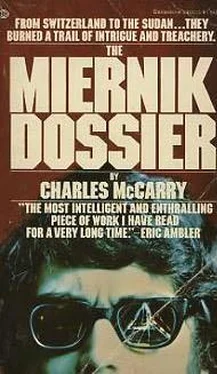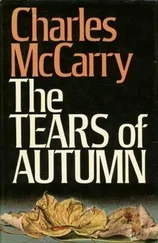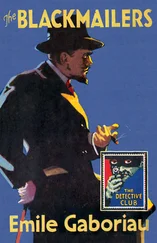I told him I wanted to stay. Maybe I can be of some help to you, I said. “After all, I owe you something for that wonderful ride you gave me across the Czech frontier.”
Kalash stared at me and laughed. “I suppose you do,” he said. “We both seem to be the playthings of fools. Has it not struck you how very odd our friendship has become? We have progressed from a weekly luncheon to an hourly mystery. I was raised in the belief that white men are amateurs of intrigue-my father used to go to the Governor General’s mansion on the Queen’s birthday and talk loudly in dialect about slitting the throats of all the Englishmen there. They would smile at him through their sweat and talk about building a school in some benighted village. Because they didn’t understand our language, he thought they didn’t understand our intentions. They understood that we had no power to carry out our intentions; you can’t slit a throat without a knife. Now they’ve hardly gone and we’re back where we were before Gordon was beheaded-slicing up each other. One of the bigwigs of this Communist band-they call themselves the Anointed Liberation Front, if you can imagine that-is a bastard brother of mine. I don’t know him, my father got him on some woman someone gave him. But my father wants him dead. He’s an insult to the blood, you know, throwing in with a lot of Russians in order to kill his relations. Father should have sent him to Oxford. I’m afraid I’ve lost stomach for all this medieval nonsense.
Since the matter was out in the open, I advised Kalash to be very careful in his dealings with the ALF. The thought that he might be harmed had not occurred to him. Kalash has the idea that his person is untouchable in Sudan. Of course he may be right. But I don’t think that his half brother is likely to have much respect left for the old traditions after his training in Moscow, not to mention the fact that Kalash and the Amir are the principal obstacles between him and whatever his notions of power and self-esteem may be. “I suppose he may have some idea that he can take over the family,” Kalash said. “It’s happened before. Illegitimate sons are the curse of our system.”
It took a great deal of persuasion, but in the end Kalash agreed that we can finish the journey to El Fasher with him. Unless his cousin the chief inspector is as indiscreet as Kalash, there should be no trouble. “It will be rather interesting to see which way old Miernik shoots if the Communist camel corps falls on us along the way,” says Kalash. So it will.
Kalash has agreed not to discuss his conversation with Qasim with any of the other members of our group. He seemed mildly insulted that I thought he might do so: “It’s not the sort of thing one would discuss with Miernik or the girls, you know. One merely tells such people to go when the time comes. One is less ready to be rude where you are concerned, Paul. It’s a great convenience having you about-you’re so willing to be kind to Miernik. That gives the rest of us the freedom to be annoyed all the time, which is the only natural response to such a man. In the end, you know, it will all burst out. You’ll be the one to strangle him.”
Kalash gave me one of the notices posted by the ALF after they carried out their crucifixions. When we met for drinks this afternoon, I had Miernik translate it in Ilona’s hearing. (Kalash did not join us in the bar.)
Later I invited Ilona to go shopping with me on the pretext that I wanted to buy some amber for my mother. In the taxi I told her that a classmate of mine, now some sort of official in our embassy in Khartoum, had told me a story about the ALF. Its leader, a Sudanese named Ahmed, was in fact working for the Americans. “It’s shocking as hell to me,” I told Ilona, “that the United States should be mixed up in such a thing. My friend said that diplomacy is more interesting than most people imagine. He’s always been an ass. I don’t suppose the story is true, but all the same…”
Ilona showed no special interest in the information. She advised me not to disturb myself over what governments do. “They have nothing to do with us, Paul,” she remarked. “They won’t abolish themselves as they should-but we can ignore them.”
She held her forearm in front of my eyes so that I could read the blue numbers from Belsen tattooed on her skin. “Of course,” she said, “ignoring them is not always easy. They have ways of getting one’s attention.”
70. FROM THE DEBRIEFING OF ZOFIA MIERNIK.
By the time we reached Khartoum all of us, I think, wanted a few minutes alone. One gets incredibly dirty in the desert. In camp, Kalash allowed us only a little water in the morning for washing-enough to clean the teeth and the corners of the eyes. So when we got to the Grand Hotel (which is not so very grand, by the way) we all went in our own directions and took baths and so forth. I didn’t see anyone from midnight one night until just before dinner the next. Not even Tadeusz. All of these people were tremendous diarists-they were always writing down the day’s events, like explorers or journalists. I don’t know why. I supposed when I didn’t see anyone that that was what they were doing- writing. I was glad to take a hot bath and be left alone. I read an American book Paul had given me. I closed the blinds and didn’t go outside at all. I had had enough of the sun. I wanted a cool dark place.
Q. Was there any more byplay between Collins and your brother over Ilona?
A. No. After we left Cairo they both became surprisingly uninterested in Ilona, and she in them, for that matter. We all became comrades. There was no more sexual banter. I must say Ilona behaved very well. She did most of the work around the camp-the cooking and sewing and so on. She behaved like a chum instead of a tart. She really was very fond of all the men. I never liked her, as I’ve told you, not even after she had undergone this change in personality. But I could see her charm. Really, she gave one no cause to condemn her. She accepted everyone else exactly as she found them. I suppose I should have done the same for her. As for Tadeusz, he was more like his old self. That peculiar cringing behavior I saw in Cairo disappeared once we got into the desert.
Q. We’d like as many details of the trip out of Khartoum as you can remember. Can you just take it day by day for us?
A. I don’t remember each day equally well, of course.
We left on a Friday and went down the White Nile. Kalash drove the Cadillac, with Ilona and Collins and Tadeusz as passengers. I rode with Paul in the Land Rover. Kalash had to go more slowly because the Land Rover couldn’t keep up. After we left the paved roads, the Land Rover led, because of the dust. We stopped a few times to look at the scenery. It was rather thrilling to see the boats on the Nile-dhows, with those sharp sails like the wings of swallows. Once we saw a whole group of them together and Paul said, “Look, the sails are like a line of Arabic script.” That’s just what they looked like.
Actually, nothing much happened until Sunday night. By that time we were in a routine-start off very early, drive until just before dark, make camp, have supper, talk awhile. Usually I played the guitar. Ilona would sing. It was a happy atmosphere.
Q. What did you talk about?
A. Anything but ourselves. I found this strange at first. For a Pole it was disconcerting-we are always discussing our souls. Westerners do not speak of their inner lives-at least not Paul and Nigel and Ilona. Kalash, of course, is a black Englishman. On the trip we talked about literature, the theater. All of them had a great store of information. One of them was bound to know all about almost anything that came up in conversation. Nigel, for example, seemed to know the names of all the butterflies and birds in the world. No one ever mentioned politics. The subject did not seem to interest them.
Читать дальше












